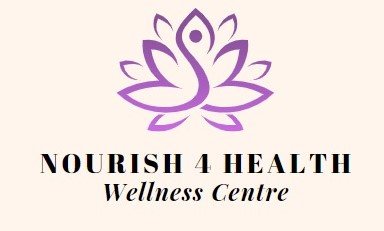In the intricate tapestry of human emotions, jealousy, envy, resentment, and bitterness are threads that can unravel the very fabric of our well-being and relationships. While it is natural to experience these feelings occasionally, allowing them to take root and flourish can lead to profound personal and social destruction. Understanding their nature, impact, and how to manage them is essential for fostering a healthier, more harmonious life.
Jealousy: The Green-Eyed Monster
Jealousy, often dubbed the “green-eyed monster,” emerges from the fear of losing something we value to another person. This emotion can manifest in various contexts, such as romantic relationships, friendships, or professional environments. Jealousy is insidious because it feeds on insecurity and fear, distorting our perception of reality and causing us to act irrationally.
The destructive power of jealousy lies in its ability to erode trust and intimacy. In romantic relationships, for instance, constant jealousy can lead to controlling behavior, accusations, and an unhealthy dependency that suffocates love. Over time, this can drive a wedge between partners, leading to a breakdown in communication and ultimately, the relationship itself.
Envy: The Seed of Discontent
Envy arises when we covet what someone else possesses, be it material wealth, social status, or personal achievements. Unlike jealousy, which is rooted in fear of loss, envy stems from a desire for what others have. It is a corrosive emotion that focuses on external comparisons rather than internal satisfaction.
Envy is particularly harmful because it breeds discontent and ingratitude. When we constantly measure our worth against others, we lose sight of our own achievements and blessings. This not only diminishes our self-esteem but also sours our interactions with those we envy. In extreme cases, envy can motivate destructive actions aimed at undermining others’ success, creating a toxic environment that hinders collective growth and cooperation.
Resentment: The Silent Saboteur
Resentment is the lingering bitterness that results from perceived wrongs or injustices. It festers when we feel wronged, slighted, or unfairly treated, often by those closest to us. Unlike anger, which can be a transient emotion, resentment is more enduring and can quietly undermine our happiness and relationships.
The destructive nature of resentment lies in its ability to transform minor grievances into major conflicts. When we hold onto resentment, we carry an emotional burden that clouds our judgment and prevents us from moving forward. This can lead to chronic stress, health problems, and a pervasive sense of dissatisfaction. Moreover, resentment often leads to passive-aggressive behavior, further eroding trust and goodwill in relationships.
Bitterness: The Poison Within
Bitterness is the culmination of prolonged feelings of jealousy, envy, and resentment. It represents a state of deep-seated negativity and cynicism that colors our entire outlook on life. Bitterness is a particularly toxic emotion because it not only affects the individual but also those around them.
The destructive power of bitterness is profound. It saps joy, stifles personal growth, and isolates us from others. Bitter individuals often become trapped in a cycle of negativity, where every experience is tainted by past hurts and disappointments. This not only alienates potential friends and partners but also perpetuates a self-fulfilling prophecy of unhappiness and failure.
Overcoming Destructive Emotions
While jealousy, envy, resentment, and bitterness are deeply ingrained in the human psyche, they are not insurmountable. Overcoming these destructive emotions requires self-awareness, empathy, and a commitment to personal growth.
- Cultivate Self-Awareness: Recognize and acknowledge your feelings without judgment. Understanding the root causes of these emotions can help you address them constructively.
- Practice Gratitude: Focus on the positive aspects of your life and appreciate your achievements and blessings. Gratitude shifts your perspective from what you lack to what you have.
- Foster Empathy: Put yourself in others’ shoes. Understanding others’ perspectives can reduce feelings of jealousy and envy, and foster more compassionate relationships.
- Let Go of Grudges: Release past grievances and practice forgiveness. Holding onto resentment only harms you, not the person you resent.
- Seek Support: Engage in open communication with trusted friends, family, or a therapist. Sharing your feelings can provide relief and insights that help you navigate your emotions.
Conclusion
Jealousy, envy, resentment, and bitterness are powerful emotions that can wreak havoc on our lives if left unchecked. By cultivating self-awareness, gratitude, empathy, and forgiveness, we can transform these destructive feelings into opportunities for growth and connection. In doing so, we pave the way for a more fulfilling and harmonious existence, both for ourselves and those around us.

Thank you so much for the article it is educative
Thanks for your valuable feedback. It is great knowing people appreciate these articles. Thanks and visit again and again for more educative articles.